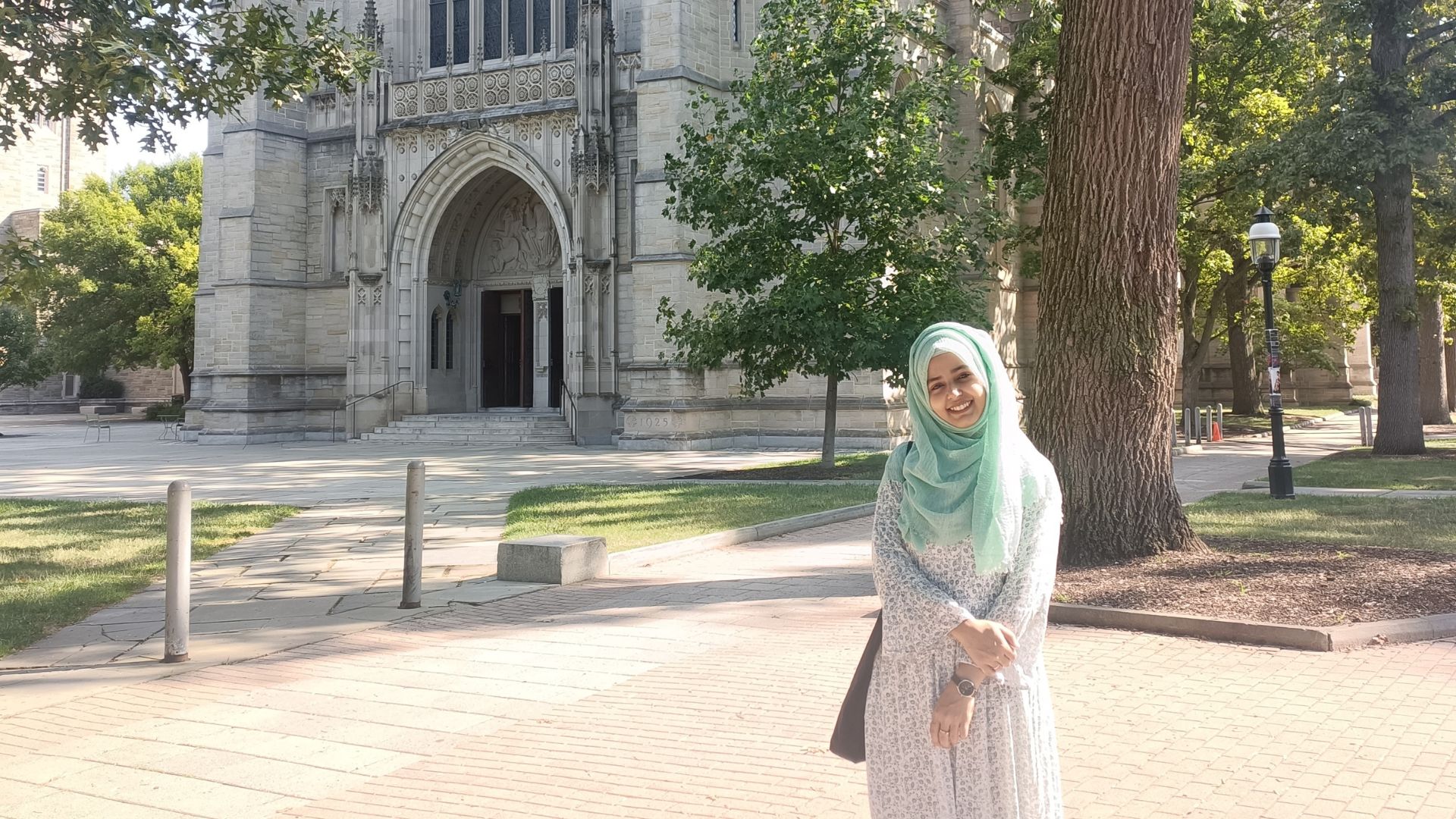Zainab Rashid, a student at Princeton University, talks about observing Ramadan and connecting with her community during the month-long festival in the United States.
April 2023

Zainab Rashid says community events organized by Princeton University’s Muslim Students Association offer international students a sense of community far away from home. Photograph courtesy Zainab Rashid.
For a woman who did not step out of New Delhi most of her life, moving to the United States marked a transition of humongous proportions for me. In my constant conflict of missing my home and the exposure to a new nation, I am incessantly battling to enable the communion of the two.
One of the best opportunities for this is the holy month of Ramadan—a chance for not just individual spiritual reflection, but also to get connected to the Muslim community. Living on campus during the month of Ramadan has plenty to offer in terms of community building. I have heard from other students about the community suhoor and iftar, organized by the Muslim Students Association of the university. I look forward to this so much as it will be an excellent way to not just have a sense of community far away from home but will also provide momentary relief in an otherwise fast-paced academic life.
I am also planning to go beyond the confines of the university and develop close connections with mosques in and around our area. Mosques in the United States are not just sites for performing prayers but essentially a hub of community-building. Throughout the year, mosques arrange various events to help people come together, reflect spiritually, and bond with each other. I appreciate how mosques here are not just spaces limited to men but are also tremendously welcoming to women and children.
During Ramadan, I want to attend events apart from just regular prayers, along with my husband and daughter. This is because the holy month is a special time to cultivate and hone one’s spiritual sensibilities and this can happen best in a mosque. Since it will also be our first Id al-Fitra so far away from home naturally we will miss our friends and family. I am thinking of organizing or participating in some community feast for students and their families here in Princeton. This Ramadan, as our first in a new country, will honestly be a bitter-sweet experience—between longing for the familiarity of home and its culture, and the excitement of exploring a new way of doing things.
Zainab Rashid is a Ph.D. student at Princeton University.
COMMENTS